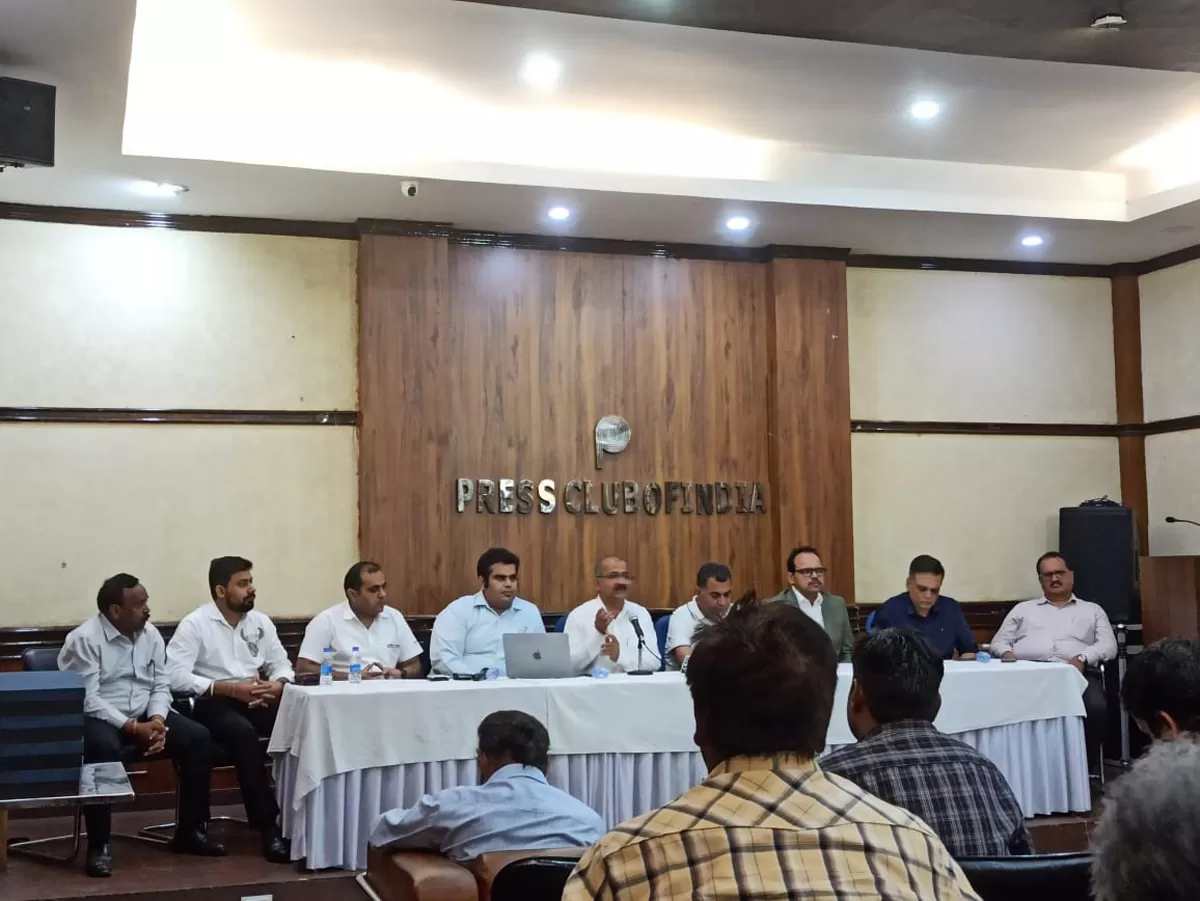The Electric Vehicle Manufacturers' Society (EVMS), representing more than 200 organised and MSME EV manufacturers across India, held a press conference at the Press Club of India, highlighting two major challenges facing the country’s electric mobility sector. These include the widespread operation of illegal e-rickshaws and the sharp increase in low-quality imports. Shri Rajiv Tulli, General Secretary of EVMS and an industry veteran with over 25 years of experience, led the session. He made a strong case for urgent policy action, regulatory clarity, and coordinated steps from all stakeholders to address these pressing concerns.
E-rickshaws have emerged as one of the most significant contributors to India’s green mobility revolution. With over 50 lakh e-rickshaws currently operating across the country, supported by nearly 500 MSME manufacturers of e-rickshaws and e-carts, the sector has delivered substantial environmental and economic benefits.
E-rickshaws have delivered significant environmental and economic benefits. They cover over 1 billion green kilometres daily, saving nearly 4 lakh metric tonnes of carbon emissions, equivalent to planting 2 billion trees. Their widespread use has replaced 98 percent of manual paddle rickshaws, saving around 50 million litres of petrol each day and reducing India’s fuel import burden. The sector has also created over 50 lakh direct and 75 lakh indirect jobs, especially in smaller towns and rural areas, providing livelihoods to vulnerable communities. Affordable and efficient, e-rickshaws have become the most reliable last-mile connectivity option for millions and play a vital role in supporting metro rail networks across cities.
Despite these contributions, misconceptions around e-rickshaws persist. EVMS clarified that safety concerns largely stem from illegal, unregistered and substandard vehicles operating outside the regulatory framework. Compliant e-rickshaws undergo rigorous testing by authorised agencies before receiving certification and registration. Traffic disruptions and safety issues are mainly linked to non-compliant vehicles, not the approved, road-worthy ones produced by responsible manufacturers. EVMS is working with authorities to enforce fitness checks and seize such illegal vehicles.
It is crucial to distinguish between valid, compliant e-rickshaws and illegal, unapproved ones. A valid e-rickshaw has road registration, a number plate, a chassis number, a compliance plate, insurance and a fitness certificate. These vehicles use approved OEM parts and meet all safety and quality standards.
Illegal e-rickshaws, on the other hand, often operate without registration, number plates or valid chassis numbers. Many are converted from paddle rickshaws to electric without meeting safety norms. They lack compliance plates, insurance and use low-grade, untested parts. With no fitness certification or roadworthiness clearance, these vehicles pose safety risks to commuters and undermine the sector’s credibility.
While the growth of the sector is undeniable, the unchecked rise of illegal e-rickshaws remains a serious concern. EVMS estimates that nearly 4.75 lakh unregistered e-rickshaws currently operate in Indian cities without proper driver certification or formal registration.
Rajiv Tulli, General Secretary of EVMS, pointed out that delays in the lack of a streamlined registration process have allowed illegal operators to flourish. This not only endangers public safety but also creates unfair competition for compliant manufacturers who invest in quality and regulatory compliance.
Adding to the challenge is the sharp rise in substandard imports of EV components and chassis. Between 2021 and 2024, motor imports jumped from ₹320 crore to ₹870 crore, while controller imports increased from ₹140 crore to ₹410 crore. A significant portion of these imports, particularly from China, do not meet Indian quality standards and are unsuitable for local operating conditions.
These inferior imports pose serious risks to vehicle performance and commuter safety. They also hurt domestic MSME suppliers, whose market share has already dropped below 35 percent. Shri Tulli described this trend as a setback to the Atmanirbhar Bharat mission and a direct threat to homegrown innovation.
EVMS also flagged gaps in enforcement infrastructure, including insufficient space to seize and scrap illegal vehicles and the absence of a clear scrap policy for ageing e-rickshaws. To support their concerns, EVMS presented a detailed dossier containing RTI replies, Delhi High Court directives on illegal vehicle seizures, notifications from the Ministry of Road Transport and Highways on EV compliance and circulars from the Delhi Transport Department.
EVMS also presented district-wise maps highlighting hotspots of illegal operations, import trend data, quality comparisons of critical EV parts and flowcharts illustrating how unchecked imports are undermining local manufacturing.
Tulli concluded by urging policymakers to take decisive action. He stressed that India’s EV transition cannot be based on compromises, safety risks or reliance on substandard imports. Enforcing existing rules, safeguarding public safety and empowering Indian manufacturers are essential to building a reliable, competitive and safe electric mobility sector for the country.





















